One of country’s oldest journalism workshops, held at OHIO, draws students from around the country [PHOTOS]
One of the most important aspects of being a journalist is asking questions. Dr. Bob Stewart, director of the E.W. Scripps School of Journalism, reminded a group of high school students of this during the opening session of the 74th annual Scripps High School Journalism Workshop at Ohio University earlier this month.
A student in the crowd then asked where Dr. Stewart bought his shirt, which led to a story about him traveling in Cambodia with OHIO journalism students. That story eventually segued into Dr. Stewart talking about the three major industries of the Asian country: clothing, tourism, and agriculture. He pointed out that workers’ rights is an important story in Cambodia.
It seems the nearly 100 high school students from nine states just received their first lesson — how one inquiry can create countless story opportunities.
The four-day journalism workshop is one of the oldest such programs in the nation. Every summer since 1946, the E.W. Scripps School of Journalism has offered high school students and teachers the opportunity to interact with OHIO faculty and professional journalists while learning the latest techniques for journalism in a school setting.
“We’re just thrilled to have you here,” said Ohio University President M. Duane Nellis. “It’s great to have you as part of the E.W. Scripps School of Journalism. It is one of the most elite schools of journalism in the United States. … We’ve had 41 Pulitzer Prize winners that have come through the Scripps College, so it’s an amazing success story.”
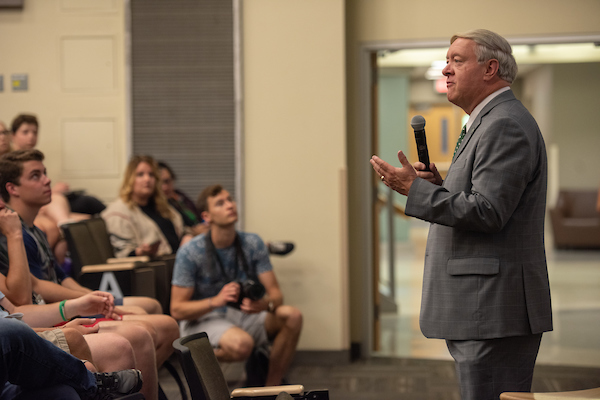
Ohio University President M. Duane Nellis speaks to participants of the High School Journalism Workshop. Photo by Ben Siegel Tim Sharp, director of the workshop and an OHIO journalism faculty member, told students that they would soon be mentored by world-class instructors. “It’s a small world that we live in in journalism in regards to what track or approach you choose, so because you have the opportunity to rub shoulders with these people – do so now,” he added. Workshop faculty included alumni, faculty from both journalism and visual communication, staff from WOUB Public Radio and current OHIO students practicing in the industry.
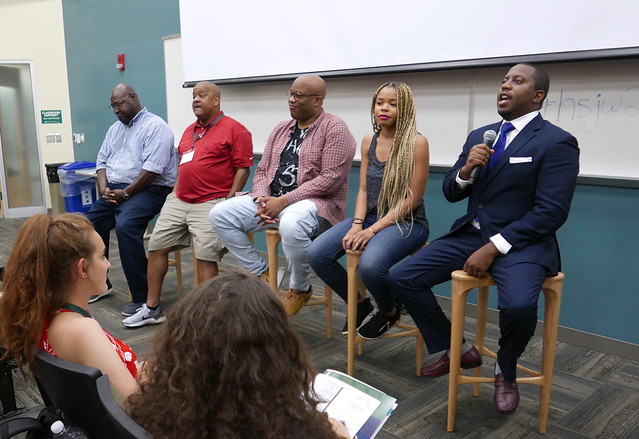
Larry Seward, Ugonna Okpalaoka and others speak on diversity and diverse views in the newsroom during one session of the journalism workshop. Photo courtesy of the E.W. Scripps School of Journalism. Thirteen OHIO alumni were among the workshop faculty and many return each summer to help, including Bobcat alumni and husband and wife, Barbara Perenic and David Jablonski. Perenic is a photojournalist and picture editor for the Columbus Dispatch and Jablonski is the Dayton Flyers beat writer and photographer for Dayton Daily News. Together, they’ve been presenting at the high school journalism workshop for four of the last five years. Perenic said one of the best parts of the workshop is connecting with other professionals, as well as those entering the business on the J-Crew, a group of student journalists at OHIO. “I believe advancing in journalism is partially your skills and partially your personality,” she said. “A lot of great people helped me get to where I am now. Hard work and luck played their parts too; but this business is about people. We build relationships in the community and also within the industry.”
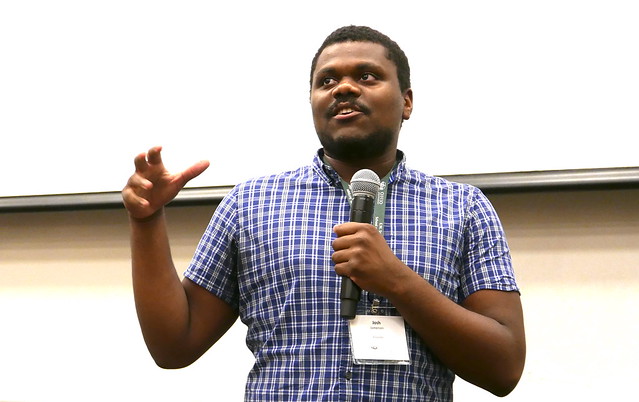
The first keynote speaker Josh Jamerson speaks to the high school journalism workshop students. He's a 2015 OHIO graduate and is covering the 2020 Democratic Party presidential race for the Wall Street Journal. Photo courtesy of the E.W. Scripps School of Journalism During the workshop, the students attended presentations on investigative reporting, diversity, coding, design and data journalism and covering suicide. They also attended five sessions focused on their chosen track: broadcast, magazine, news writing, photojournalism, sports, advertising and public relations, design, virtual reality video or podcasting.
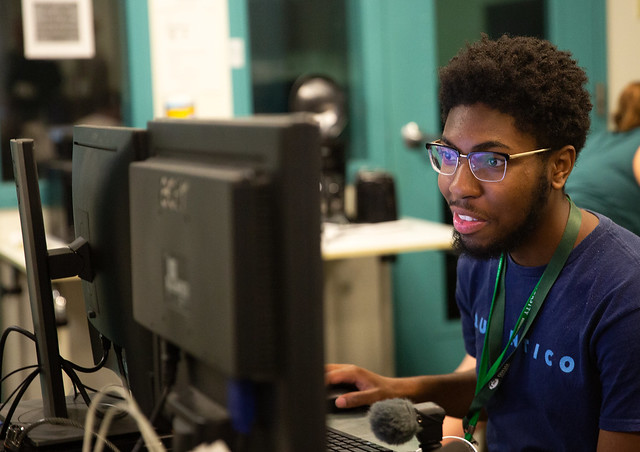
A student works on their track project during the high school journalism workshop. They attended five track sessions to delve into their area of interest. Photo courtesy of the E.W. Scripps School of Journalism On the final day of the workshop, the students presented their track projects to their peers. Lily Geiser, a student who participated in the news track, described how her group got to choose from three stories. The students then went to a press conference, recorded audio, transcribed it and wrote their stories. Emily Gold was a part of the photojournalism track, where they used a lens to document their subjects. “Photo-j is taking pictures of people and telling their stories through these pictures,” she explained before her group showed a slideshow of their work. “I’m really proud of everyone here, they did an awesome job.”
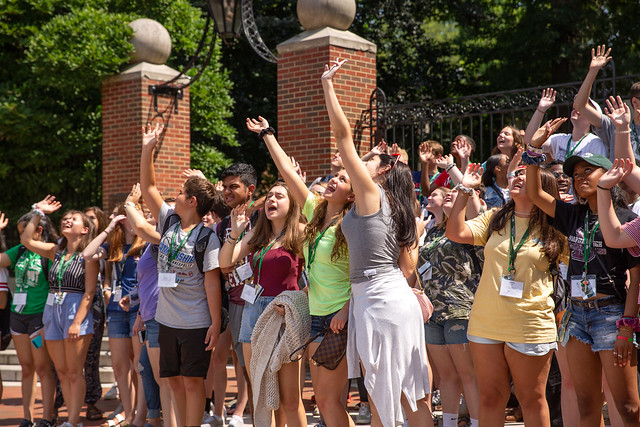
The 2019 high school journalism workshop students gather for a photo during the beginning of their time at OHIO. Photo courtesy of the E.W. Scripps School of Journalism
